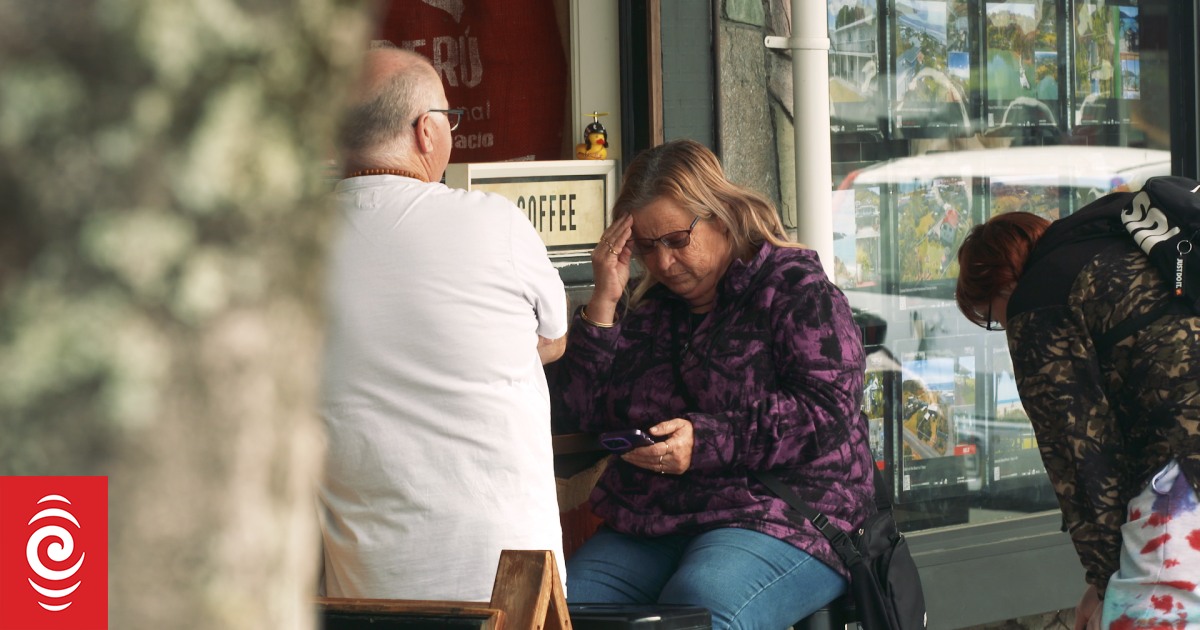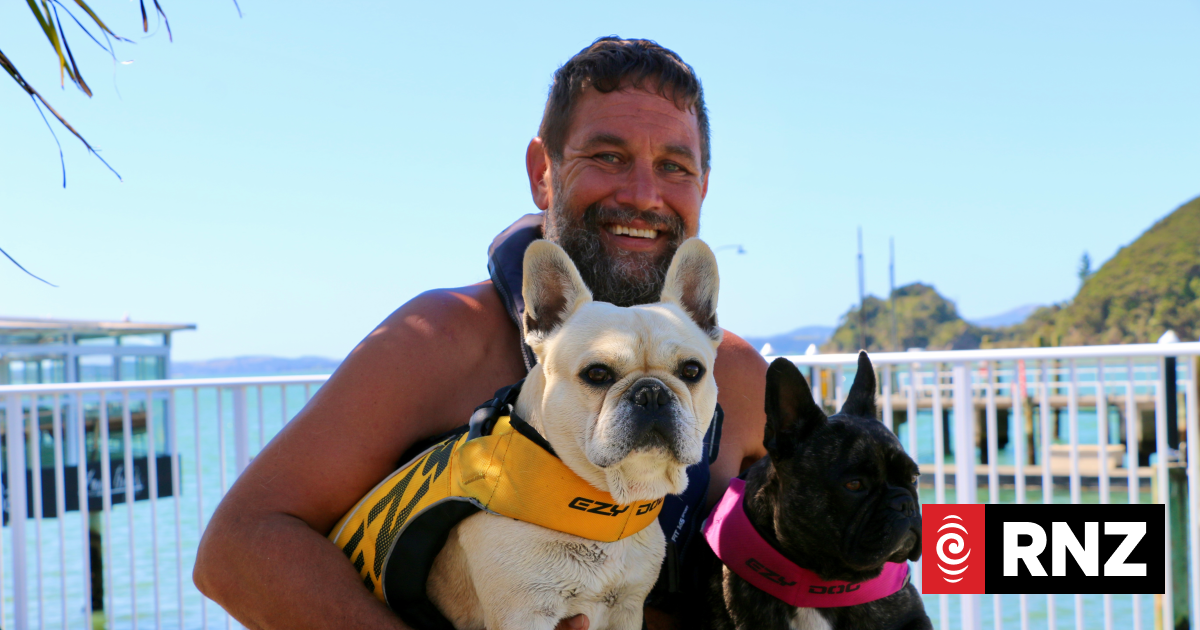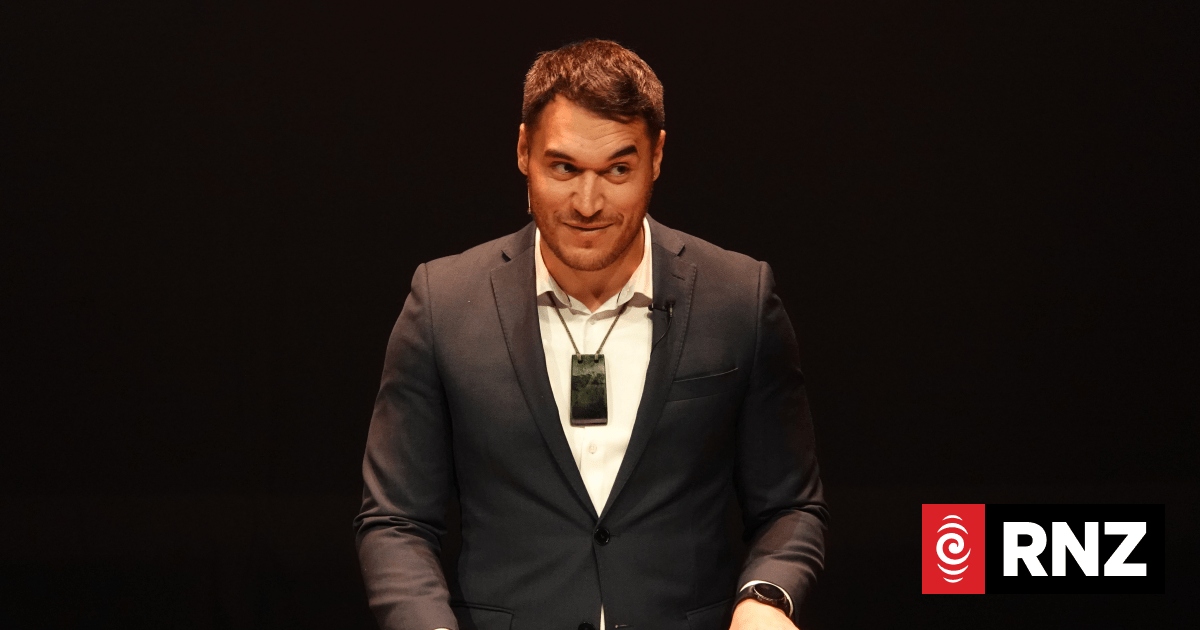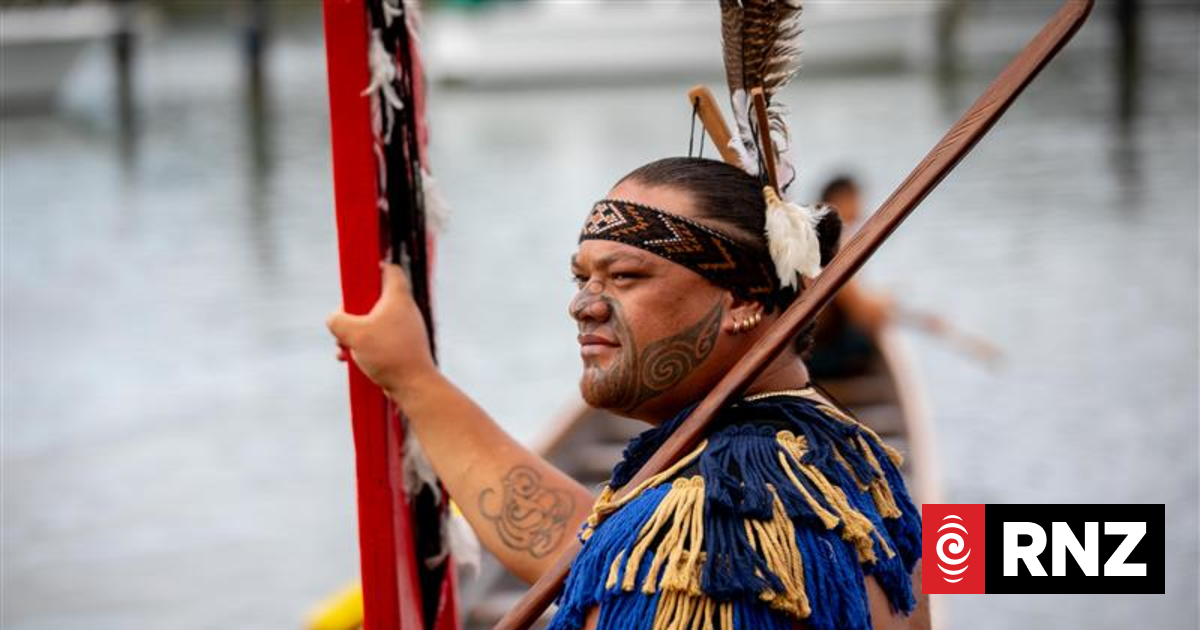Residents and businesses owners in Kaitaia describe the mad scramble for generators when the town was plunged into darkness on Thursday.
Frustrated that Northland’s infrastructure failed them yet again, some said it was the latest in a series of misfortunes including Covid-19 and Cyclone Gabrielle.
When the lights went out at Gecko Café in central Kaitaia, the first thought for owner Helen Munro was her food stock.
She was told it could take a couple of days for the power to return, plenty of time for her perishables to perish.
“All our refrigeration… we can’t last 48 hours without power or the food will go off in the freezers,” she said.
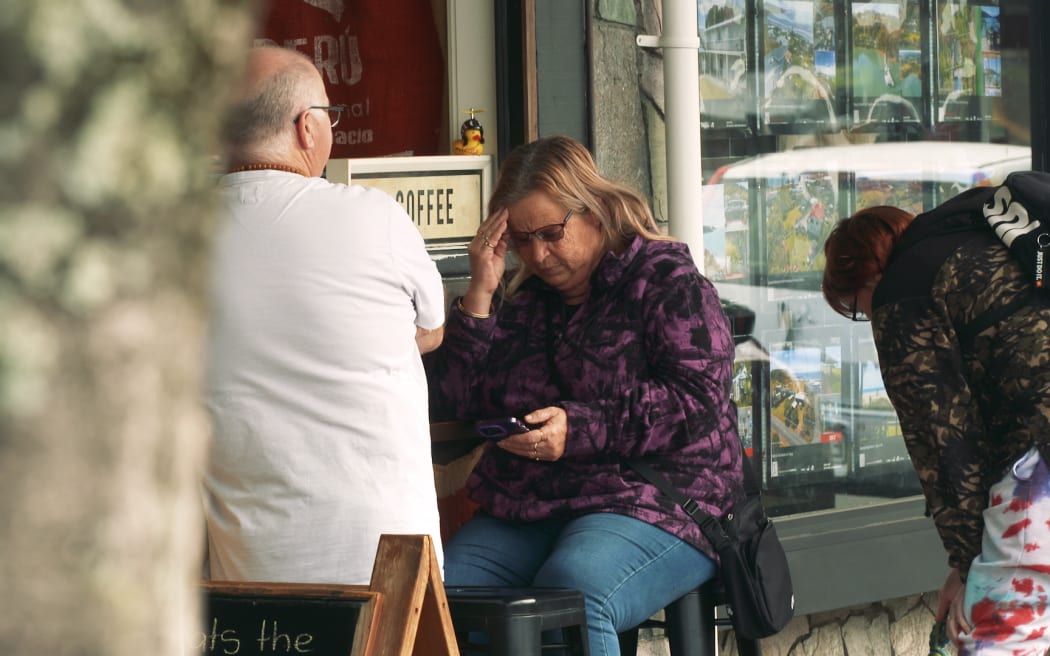
Power was out to Kaitaia for some time on Thursday after a large high voltage pylon fell, cutting supply to Northland.
Photo: RNZ/Nick Monro
Munro and her husband Don tried to hire a generator, but they had been booked out. Instead they paid $1500 for a new one.
Power came back at around 6.30pm, but their coffee machine did not survive the surge.
“Something happened with the power coming back on… the coffee machine is down,” she said.
On Friday morning the couple was busy setting up a back-up coffee machine. Without a way to give their customers a caffeine fix after a stressful 24 hours, they expected to lose two-thirds of the day’s business.
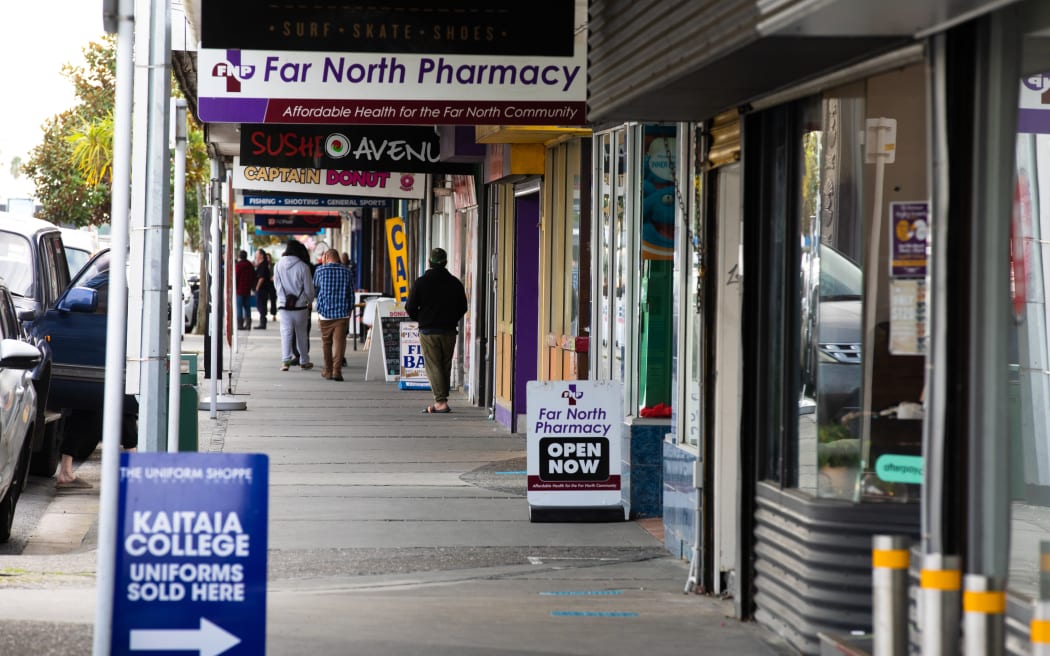
The power came back in Kaitaia at about 4pm on Thursday, but one café owner said it was uncertain whether it would still be on this morning – fortunately it was.
Photo: RNZ/Nick Monro
Munro said Gecko Café’s revenue was 45 percent down compared to pre-Covid, impacted by lockdowns, cyclones and the closure of State Highway 1 through the Mangamuka Gorge.
“It’s just one thing after another, it’s almost like we’re forgotten up here,” she said.
“Who else goes without their major road for over two years?”
Another café owner across the street, Levana Sietses, felt the same way.
“It’s frustrating because the Far North is definitely very restricted and cut off from a lot of things, so when something like this happens it does affect the businesses a lot,” she said.
“Because we’re a small town we really need to try and make as much money as we can in the time we’ve got.”
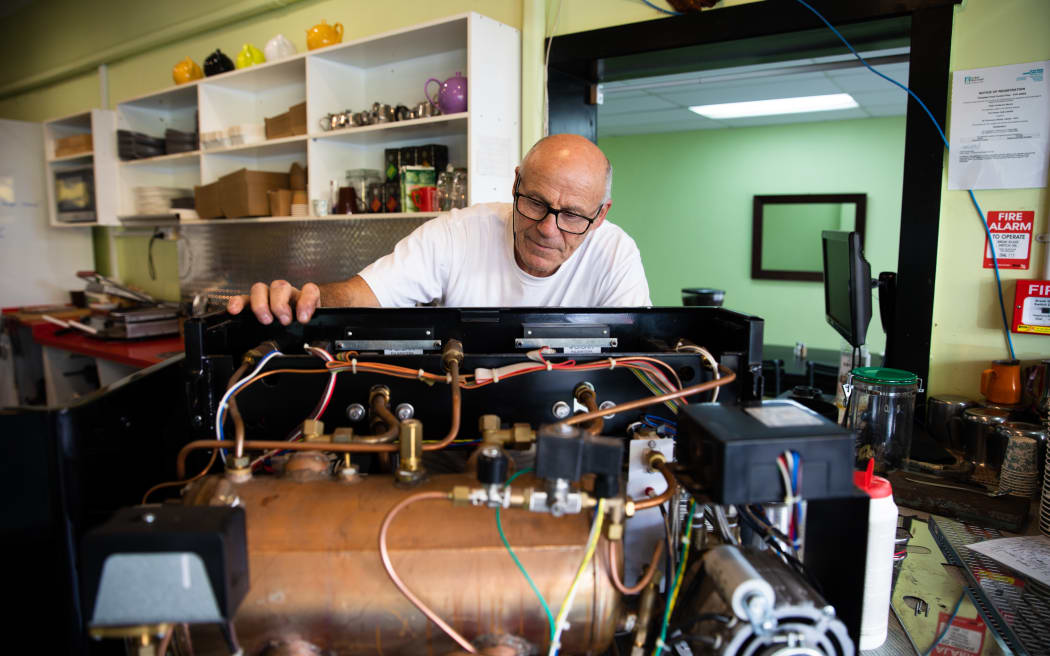
On Thursday Northland residents were warned to unplug small appliances which could be damaged by electrical surges once the power came back on.
Photo: RNZ/Nick Monro
Meanwhile, Northlanders were warned that further outages could be possible and were asked to conserve power as crews worked to restore the fallen tower.
Sietses said that while power came on at about 4pm on Thursday, she was uncertain if that would last.
“I definitely came to work this morning not knowing we would have power to open the shop, luckily we did,” she said.
“Everyone is restricted in their power use now.”
Some rural residents, like Amy Dow, were hit especially hard. She said she felt stranded.
“Because we live so far out of Kaitaia… cell phones, they don’t work for us,” she said.
“If we have an emergency, what do we do? We have no phone to call.”
Others were in disbelief at the vulnerability of Northland’s infrastructure.
“It’s a bit surprising isn’t it… I didn’t think the supply was so vulnerable that one tower going down [meant] the whole of Northland’s out,” one resident said.
Someone has to own up for mistake – Chamber of Commerce
Northland Chamber of Commerce chief executive Darryn Fisher told Checkpoint: “It’s been a tough couple of years, particularly the last six months with the closure of the Bryndewyns and the fragile nature of our infrastructure here in Northland.
“We’re starting to feel like a bit of a third world country up here.”
He said he agreed with ministers that described the event as “completely unacceptable”, and he was very appreciative of local power lines who reacted quickly.
“Something as simple as reliable infrastructure, whether it be a road or a power line, is a pretty reasonable thing to request and this has been brought up. The fragility of our power is not a new proposition to Transpower, it’s been known for years.
“It’s been highlighted for a long time, yet here we are,” he said.
Fisher said after speaking to a number of businesses, he believed around $40 million had been lost.
“I know that this issue goes much further south than from Whangārei, so it goes Snells Beach, Warkworth and Wellsford, the whole area. I don’t think there would be any hesitation of us doubling that number, and that’s just on one day’s trading,” he said.
He said Northland will be on limited trading for at least Friday and over the weekend.
“I think to throw a number like 80 million at it is not unreasonable.”
Fisher said Northland alone had a $10 billion economy and had the lowest GDP per capita in New Zealand.
“If you just divide the $10b by working days, you’re already at about $40m a day.”
He said compensation had to be on the table with the average business in Northland being anywhere from 30 to 45 percent down in revenue due to the Bryndewyns being closed.
“Someone’s gotta come to the party and own up to the mistake and provide compensation for businesses in Northland,” he said.
“Why not? I mean, they’ve had to throw out stock, they’ve had to pay their staff, they’ve had to pay their overheads of leasing their buildings and all the equipment.”
Fisher said Transpower had told him there would be a full investigation.
“I was really pleased to hear that the minister said that there was going to be a full line investigation by the Energy Authority as well,” he said.
He said that he would expect by Monday that Northland residents and businesses will have some clarity.
“I guess there’s no point now looking backwards, the damage is done. We need the temporary solution back in place so that we can have full power,” he said.
“Our major employers, major businesses up here like Fonterra, Golden Bay Cement and our timber mills. They’re all still closed. I mean, they have to close to allow the available power to go out to the residential communities, schools and hospitals just to keep them powered up. So you know this is gonna go on for another few days yet.”
Fisher said in regard to Transpower’s response, “I think they’ve reacted as best they can in a bad situation”.
He said after speaking to North Power and Top Energy, they said Transpower had “mobilised teams as quickly as they could to to rectify the situation”.
“You’ve got to applaud people for getting on and fixing things as quickly as possible, but really, it sounds to me like this incident could have been avoided and we’re just lucky that if it weren’t for Top Energy and North Power, there would have been a lot of cold, wet people last night.”

